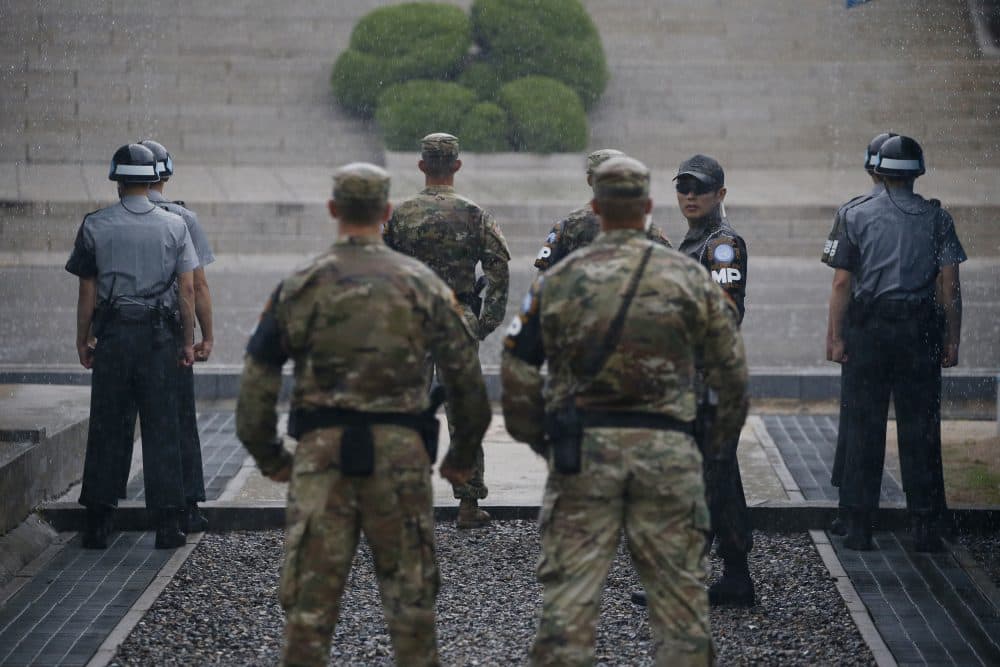Advertisement
63 Years After The Korean War Armistice, How Have North-South Relations Evolved?
Resume
Wednesday marks the 63rd anniversary of the truce agreement that ended fighting of the Korean War.
The war began June 25, 1950, after Communist soldiers from North Korea crossed the 38th parallel and invaded the South. Some 5 million soldiers and civilians died by the time the war ended in 1953.
Today, the peninsula is still divided. Here & Now's Meghna Chakrabarti speaks with security analyst Jim Walsh about the evolution of relations between North and South Korea.
Interview Highlights: Jim Walsh
On what first comes to mind when he thinks about the Korean War
“I think first and foremost, I think about the men and women who served in that war. People like my father-in-law, Hollis Nichols, involved in a brutal and terrible war — one that gets lost in the collective memory, sandwiched between WWII and Vietnam — it doesn’t really get the attention it should.
But incredibly important, and as you think about that span of decades, really it’s a story of a rising South Korea — from a backwater to one of the biggest economies in the world — and in terms of security, both sides were looking for war, particularly the North Koreans who initiated it. Now to a very different place where neither side wants a war, but the danger of nuclear weapons hangs in the shadows.”
On what triggered the war and the United States' involvement
“That’s a matter of some historical debate, whether statements by [President Harry] Truman encouraged the North Koreans to attack. But it was the North Koreans who initiated the war. I think most people would judge they had been planning that since the end of WWII. They march down the peninsula, take over more than 90 percent of South Korea.
Really, South Korea hanging on a thread when U.S. allies and others — and the United Nations — intervene. Back and forth on that peninsula that war went. Up and down where the front line was constantly changing. More than a million battlefield deaths occurred, and atrocities and a lot of other terrible things.”
On notable operations during the Korean War
“The amphibious landings in Incheon goes down in history as one of the great military maneuvers. Probably, [General Douglas] MacArthur’s miscalculation thinking he could cross the Yalu River and China would not respond, but they did, again causing a dramatic change in the war. I think those are the two things from a military standpoint.
Not much, in those days… Remember we are just five years out of World War II, both countries were already decimated by one, a Japanese invasion and secondly, the liberation itself was a battle as well. It was a peninsula in tough shape and suffered and intense three-year war.”
On the U.S.' decision to call the conflict a "military intervention"
"You can imagine what the American people, what their sensibilities were like five years after World War II. I don’t think they were really chomping at the bit to get involved in another land war in Asia. The U.S. in that mode was think much more about NATO, much more about the central European front, the threat Russia posed to Europe. So really Truman had to enter into this without all the political support and the American public opinion."
Guest
Jim Walsh, Here & Now security analyst, research associate at the Massachusetts Institute of Technology's Security Studies Program. He tweets @DrJimWalshMIT.
This segment aired on July 27, 2016.